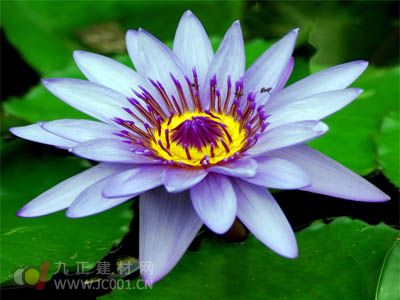Alias: Lotus, Fuxi, Shuizhi, Zezhi, Shuihua, Shui, Furong, Shuifu, Yuhuan, Grass Furong, June Spring, Chinese Lotus. Common varieties: White water lily, Qinglian girl, Welcoming hibiscus, Rose red platform, Snow white, Golden age, Qinyuanchun, Small Yang, Heavy water, Spring, White crane, Spark. Morphological characteristics: The lotus has a rhizome with multiple thickened sections. Its petioles are thorny and columnar, while the leaves are nearly round, reaching up to 60 cm in diameter. The leaves are green on the front and have a waxy white coating on the back. The flowers grow singly, often extending beyond the leaf apex, and are single-lobed or complex. Double-petaled varieties display a wide range of colors, including white, pink, deep red, and pale purple. The flowers are inflated and eventually develop into lotus seeds, with one seed per hole. Reproduction of lotus: As an aquatic plant, the lotus is commonly cultivated as an ornamental species. To propagate, select 1–3 healthy rhizome segments with strong buds, plant them with the top facing down and the end slightly raised, ensuring they are level with the soil surface. After planting, keep the soil slightly dry until the plant stabilizes. Then, add 5–10 cm of water and place it in a sunny, sheltered area. Light and temperature: Lotus thrives in full sunlight. It prefers temperatures between 22°C and 30°C during the growing season, and can tolerate winter temperatures between 3°C and 12°C. Soil: For potted lotus, a mix of pond mud rich in humus works best. Alternatively, you can combine garden soil, loam, and sand to create a suitable substrate. Watering: During summer, potted lotus requires frequent watering—once or twice daily. In autumn and winter, when the plant enters dormancy, reduce watering significantly. Fertilization: Apply a balanced compound fertilizer or bean cake every two weeks during the growth period to promote healthy development. Purchasing tips: When buying lotus plants, opt for small-sized varieties like Hualien potted plants, which are easier to manage and maintain. Biochemical Incubator is suitable for scientific research institutions, colleges and universities, production units or department laboratories of environmental protection, health and epidemic prevention, drug inspection, agriculture, livestock, aquatic products and other industries as important test equipment. It is a special constant temperature equipment for water analysis and BOD determination, cultivation, preservation, plant cultivation and breeding test of bacteria, mold and microorganism Mould incubator,Intelligent biochemical incubator,Biochemical incubator Zenith Lab (Jiangsu) Co.,Ltd , https://www.zenithlabo.com